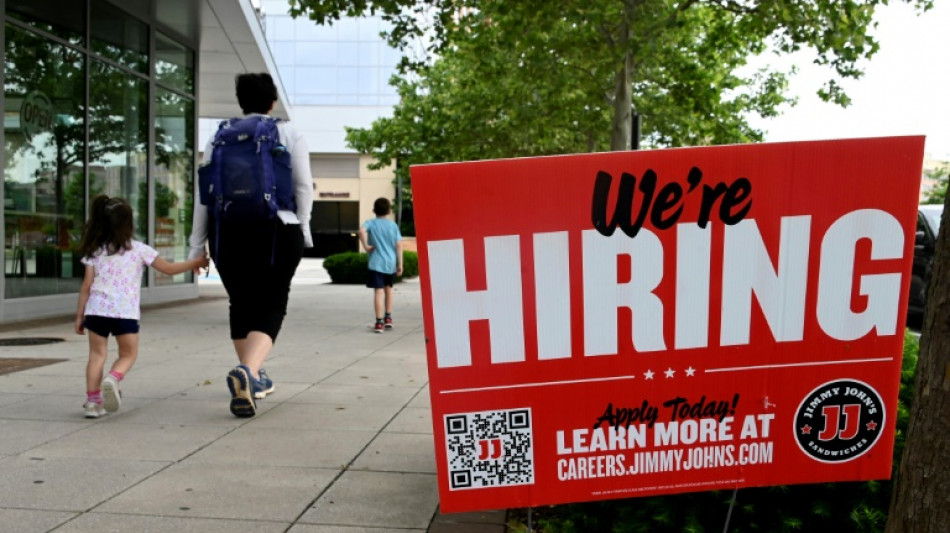

US sees big job gains in June, fueling inflation worries
The US economy added far more jobs than expected in June and wages rose, adding fuel to worries about accelerating inflation, but giving President Joe Biden a reason to cheer.
Biden has seen his approval ratings plummet as Americans face the worst inflation surge in more than 40 years, but after the latest data Friday, he underscored the rapid jobs recovery in the wake of the pandemic.
But the closely-watched Labor Department report gave few indications the economy is slowing, which likely cements the central bank's resolve to continue its aggressive interest rate hikes.
US employers added 372,000 net new jobs last month, nearly 100,000 more than economists forecast, and the unemployment rate held steady at 3.6 percent for the fourth month, the Labor Department reported.
The economy gained 2.74 million jobs in the first half of the year, more than most full years dating back to 2000.
"This has been the fastest and strongest jobs recovery in American history," Biden said in a statement.
"We have more Americans working in the private sector today than any day during Donald Trump's Presidency -- more people than any time in our history."
But with firms struggling to fill open positions and many potential workers staying on the sidelines, wages have been pushing higher, which economists fear could provoke a wage-price spiral.
- War on inflation -
The report showed average hourly earnings rose again to secure a 5.1 percent increase over the past 12 months -- slightly slower than in May -- while the share of adults in the labor force was little changed.
The data will provide little comfort to the Federal Reserve, which has declared war on inflation and launched a series of interest rate hikes to try to cool demand.
Atlanta Federal Reserve Bank President Raphael Bostic said the strong labor market is a good thing, but he stressed that he is "fully supportive" of another super-sized increase in the benchmark borrowing rate later this month, matching the three-quarter percentage point hike in June.
"We're starting to see those first signs of slowdown, which is what we need because what we have right now is a great imbalance between supply and demand that's driving the inflation," Bostic said on CNBC.
That imbalance will have to come into alignment "if we're going to get that inflation under control."
There are growing fears that the Fed's efforts to tamp down price pressures will push the world's largest economy into recession.
Fed Chair Jerome Powell has argued that the strong US job market means the economy is well-positioned to withstand the rapid ramp up in borrowing rates, although he and other policymakers acknowledge the process may inflict some pain.
Biden said job growth is likely to slow in coming months following the rapid rebound, but "No country is better positioned than America to bring down inflation, without giving up all of the economic gains we have made over the last 18 months."
- 'Fanciful' recession fears -
Total nonfarm employment remains just slightly below the pre-pandemic level in February 2020, but the private sector has recovered fully and has more jobs than before Covid-19 hit, according to the report.
Big gains in the month came in the health care and leisure and hospitality sectors, while retail rebounded after a big decline in May, the data showed. Manufacturing added 29,000 positions.
"June's strong job growth, especially in the teeth of high inflation, shows that the expansion remains on solid ground," said Robert Frick, corporate economist with Navy Federal Credit Union.
Strong consumer demand has anchored the post-pandemic recovery and defied expectations of a slowdown, but economists still believe job creation will start to slow.
Ian Shepherdson of Pantheon Macroeconomics said the recent data "support our view that talk of the economy being in recession right now is fanciful."
T.Abato--IM




